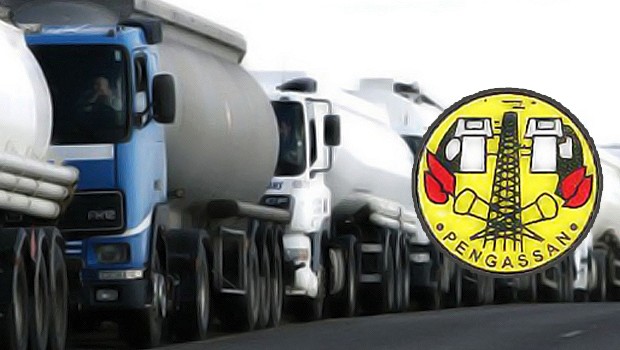Tuesday June 17, 2025|
The Petroleum and Natural Gas Senior Staff Association of Nigeria (PENGASSAN) has accused petroleum marketers of exploiting Nigerians during a period of declining global crude oil prices and blamed regulatory agencies for failing to enforce a fair and transparent pricing system.
Speaking during a press briefing in Abuja, PENGASSAN President, Festus Osifo, said that despite a significant drop in crude oil prices to about $60 per barrel, petrol pump prices remained high at N850 to N900 per litre, leaving consumers at a loss.
“If you could recall, at the time when the price per litre of petrol was sold around 900 Naira per litre, you realise that the the international crude price was somewhere around $80 per barrel,” he said.
“When the crude price reduced to around $60 per barrel, we did not see commensurate reduction in the pump price. Because naturally, two things contribute principally to the price of PMS or the price of petroleum product. One is the crude price, and secondly is the exchange rate.
“So what that means is that when the crude price reduces, the PMS price also reduces, most especially when the exchange rate is relatively constant.
“If you do the calculation, you will realise that Nigerians were exploited within that period.”
Osifo noted that when crude sold for $60 per barrel, petrol ought to have been priced between N700 and N750 per litre, if the downstream market were operating transparently.
“Yes, we understand that people have invested in their business, and they want to make profit. It is the responsibility of businessmen to maximise profit. That is why we have regulators.”
He therefore called on the Nigerian Midstream and Downstream Petroleum Regulatory Authority (NMDPRA) to act decisively.
“We call on NMDPRA to have a platform with which they publish what the price range is to be, looking at what the class price is, and then selling it to our local price here in Nigeria.
“If this trend continues, it means that if the crude price comes down to \$50 per barrel, we will not see appreciable gains.
“But the way the industry works, tomorrow, when the price of crude rises to $80 or $90 per barrel, we are going to pay more. So why can’t we feel the benefit when the price comes down?”
PENGASSAN Blames Regulators For Petrol Price Exploitation

CREATOR: gd-jpeg v1.0 (using IJG JPEG v62), quality = 90